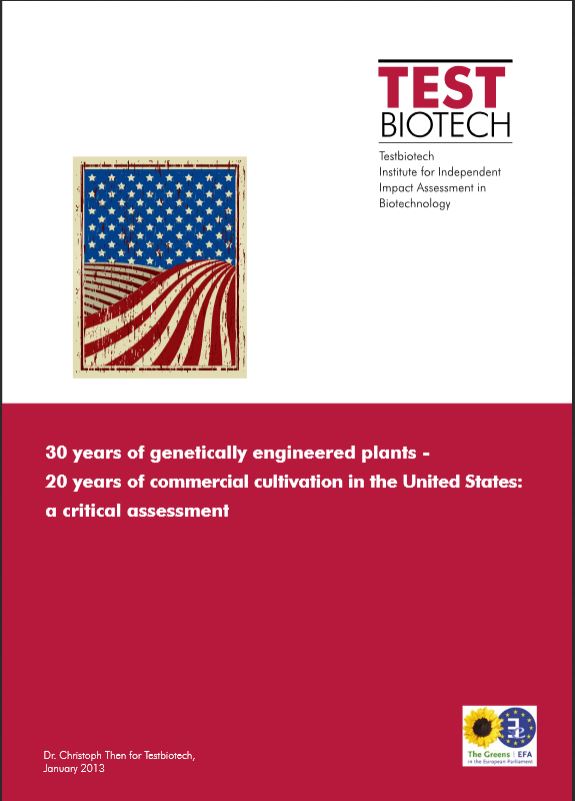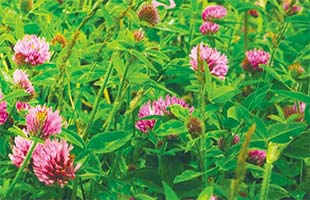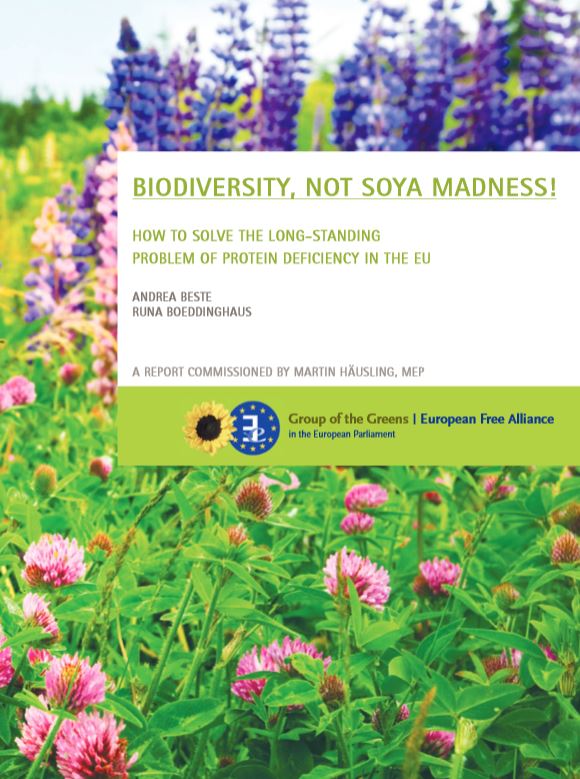- 20. Januar 2013
30 years of genetically engineered plants - a critical assessment

a critical assessment
Dr. Christoph Then, January 2013
This study was written for Martin Häusling, Green Party, Member of the European Parliament.
The English version edited and published by Testbiotech
German version: Die Rache der Käfer
First genetically engineered plants were created 30 years ago. Commercial growing in the USA began almost 20 years ago. Compared to the EU, developments in the USA were driven to a much greater extent by the business interests of companies such as Monsanto. Nevertheless, the EU has seen an opening up of its markets for the import of products derived from genetically engineered plants. In 2013, further decisions can be expected on new authorisations for cultivation in the EU.
Spanish Version:
Then C. 2013: 30 años de Plantas Genéticamente Modificadas -20 años de Cultivo Comercial en los Estados Unidos: Una Evaluación Crítica
Link: http://mx.boell.org/sites/default/files/30_anos_transgenicos_eeuu_web.pdf
- 10. September 2011
BIODIVERSITY, NOT SOYA MADNESS!


How to solve the long-standing problem of protein deficiency in the EU
Authors: Andrea Beste & Runa Boeddinghaus
September 2011 - A report commissioned by Martin Häusling, MDEP
WHEN MEAT PRODUCTION BECOMES COUNTER-PRODUCTIVE
The ability of ruminants (cattle, sheep and goats) to turn pastureland that is of little use for food production into tasty, nutritionally valuable products like beef and milk is one of the main reasons why people started using these animals and their products in the first place.
Not only do such animals extend the range of available human foodstuffs; they play an important part in the production process, producing manure, helping to work the soil, working as draught animals, providing transport, processing waste and stabilising their owners’ food security. Without them, vast expanses of land, especially in subtropical climates, would be virtually useless for human food production. In this respect they certainly enrich our lives.
- 15. September 2010
The future of the dairy market: "less is more" - a summary

Summary of an analysis of different milk market models
commissioned by Martin Häusling, MdEP (Sept. 2010)
- 15. Mai 2010
Cloning farm animals – a ‘killer application’?

Authors: Christoph Then and Ruth Tippe
A Testbiotech report prepared for Martin Häusling, MEP
May 2010
The cloning of animals for food production has raised political discussions in the European Union. The European commission is in favour of regulating food products derived from cloned animals under the Novel Food Regulation. The European Council recommended including food derived from cloned animals and their offspring under the Novel Food Regulation and later supporting a specific piece of legislation for cloned animals.
On the contrary, the European Parliament is in favour of prohibiting the marketing of these products and demanding that farm animal cloning will not be allowed unless specially authorised. In March 2011, negotiations between the EU Parliament, the EU Member States and the EU Commission finished with no political solution.





